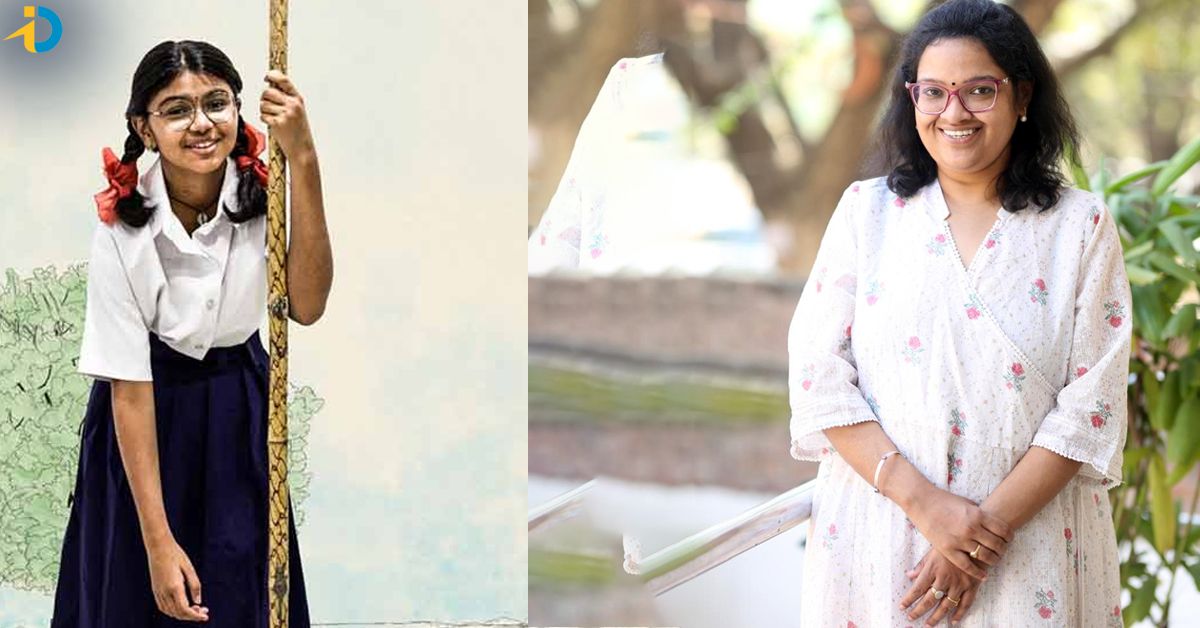DV Raju
DV Raju

Prominent director Sukumar Bandreddy’s daughter, Sukruthi Veni Bandreddy, plays the lead role in the film Gandhi Tatha Chettu The film is directed by Padmavati Malladi. Jointly produced by Mythri Movie Makers, Sukumar Writings, and Gopi Talkies, the film is presented by Mrs. Tabitha Sukumar. Producers are Naveen Yerneni, Yalamanchili Ravi Shankar, and Sesha Sindhu Rao. The movie has already been showcased at various international film festivals and has won several awards. Sukruthi Veni also received an award for Best Child Artist. The movie is set for a global theatrical release on January 24. Here’s an interview with director Padmavati Malladi on this occasion:
Your background?
I was born and raised in Hyderabad. My mother was the principal of the school I attended, so I faced strict discipline both at school and home. After completing my postgraduate studies, I worked in the writing department with Chandrasekhar Yeleti. I also worked as a writer for Radhe Shyam. During this period, I got the opportunity to contribute as a writer for Mahanati. I wrote dialogues for the movie Choosi Choodangaane and worked on the movie Ammu. Additionally, I contributed as a writer for the web series Brinda.
How did the story of Gandhi Tatha Chettu originate?
A friend suggested writing a love story between a tree and a human, and I loved the idea. I’ve always been passionate about greenery and trees, so I connected deeply with the concept. I wrote this story with the intention of conveying the importance of plants to future generations. The story is about how a young girl protects her village and a tree through non-violence. It’s a message-driven film that also has commercial appeal, guaranteed to touch hearts. This isn’t just an award film—it has elements of commerciality and emotion that everyone will enjoy.
Where was the film shot?
Initially, I wanted to create a world that fit the story, so I went to Nizamabad. In a friend’s farm there, I found the perfect tree for the story. We shot in a village called Rangampeta, surrounded by sugarcane fields. The story begins in 1947, when Gandhiji passed away, with a tree planted by the grandfather.
Why did you choose a period backdrop?
When I wrote the story, I set it in the backdrop of the time when I was in 10th grade. The filming was done in a very natural manner. On the second day of shooting, Mrs. Tabitha Sukumar decided to present the film.
It’s said that Sukumar’s daughter shaved her head for this film?
Prosthetic makeup wasn’t an easy or budget-friendly option. Moreover, the girl’s role in the story is very bold and courageous, not someone who pays heed to appearances. While hair is very important for girls, Sukruthi made a daring decision that suited the story perfectly.
Why did you choose Sukruthi for the role of Gandhi?
I could see the character of Gandhi in Sukruthi. She was the perfect fit for the role. I first noticed her during the preview of Ashoka Vanamlo Arjuna Kalyanam and later looked at her photos on Instagram. With permission from Sukumar and Tabitha, we selected her.
Sukruthi’s performance feels very natural. Did she do any homework?
We conducted workshops for two months. All the scenes were rehearsed in advance. We planned the shoot in such a way that it was completed within 25 days. Sukruthi was deeply involved in her performance.
Did Sukumar give you any advice for the film?
He said, “This is a separate genre. Make it the way you envision it. I trust you.”
How important is music in this film?
Music plays a significant role, especially the background score, which enhances the storytelling even with closed eyes.
Is this story solely about Gandhi?
This story revolves around a girl named Gandhi, embodying Gandhiji’s principles. However, it’s not a biopic of Gandhiji. The narrative connects Gandhi, the grandfather, and the tree.
What message are you conveying through this film?
The film emphasizes non-violence, which is essential between humans and also with nature.
Why are you releasing the film after winning awards?
This was Sukumar’s idea. The film received great applause at festivals, and now we expect the same response from audiences. Winning awards has brought respect to the film.
What are the additional highlights of the film?
The movie features local villagers as actors. Their natural performances added authenticity to the film.
What’s next?
I have a few stories in mind. I’ll decide on my next project after this film.